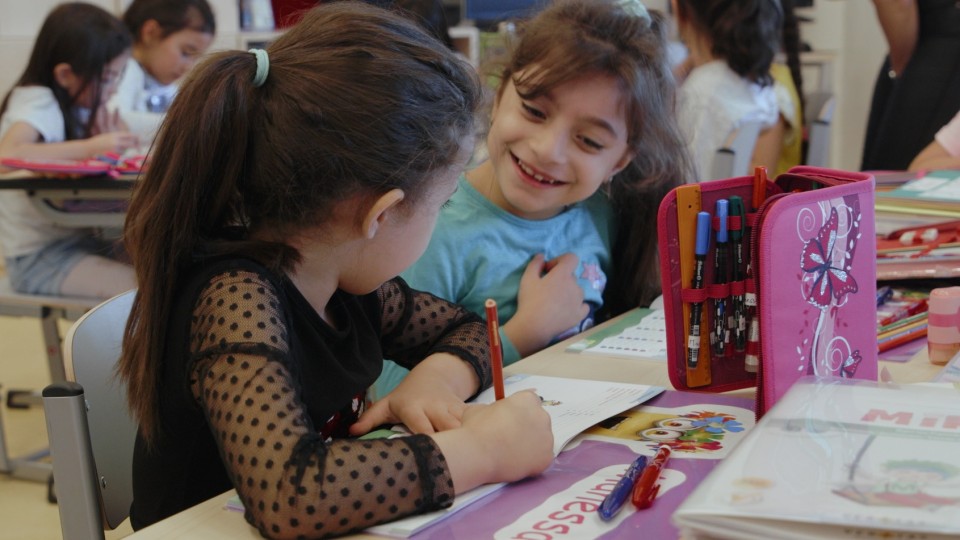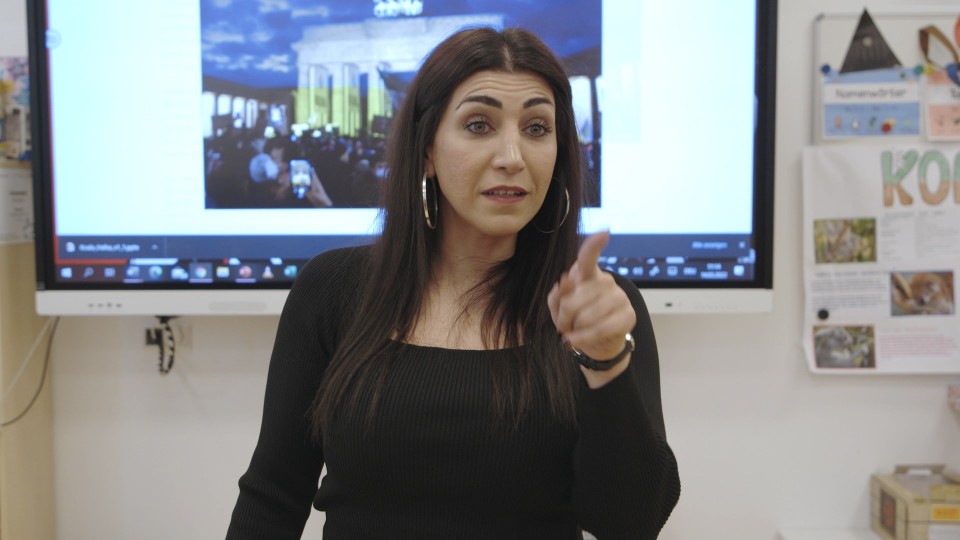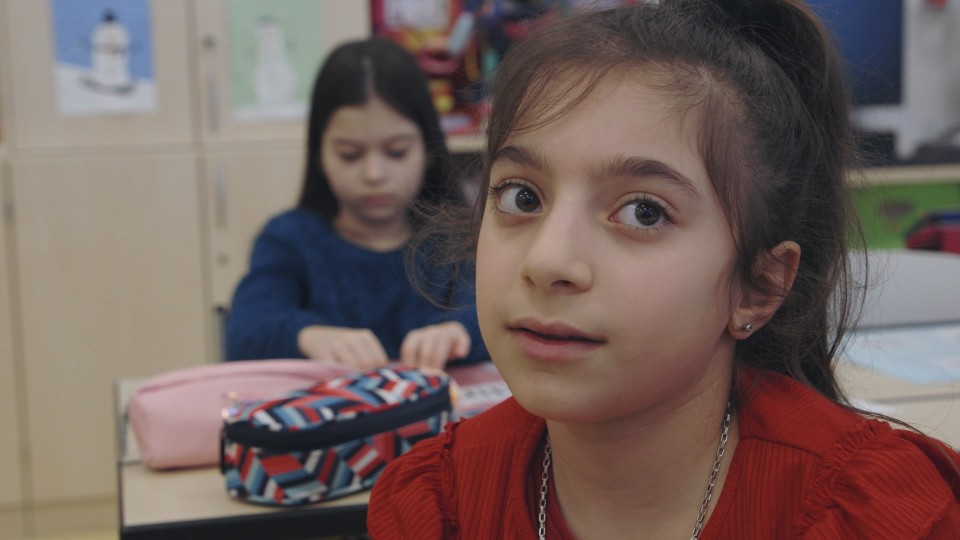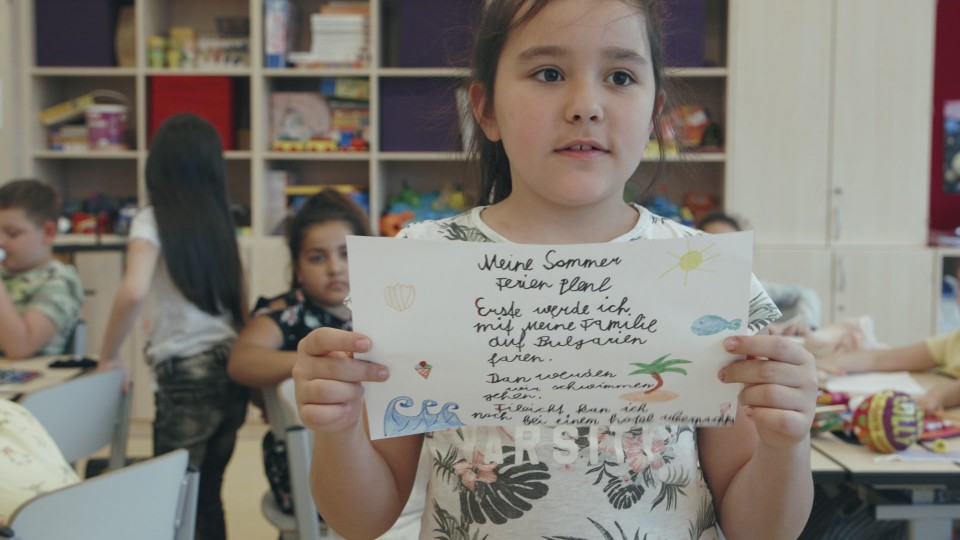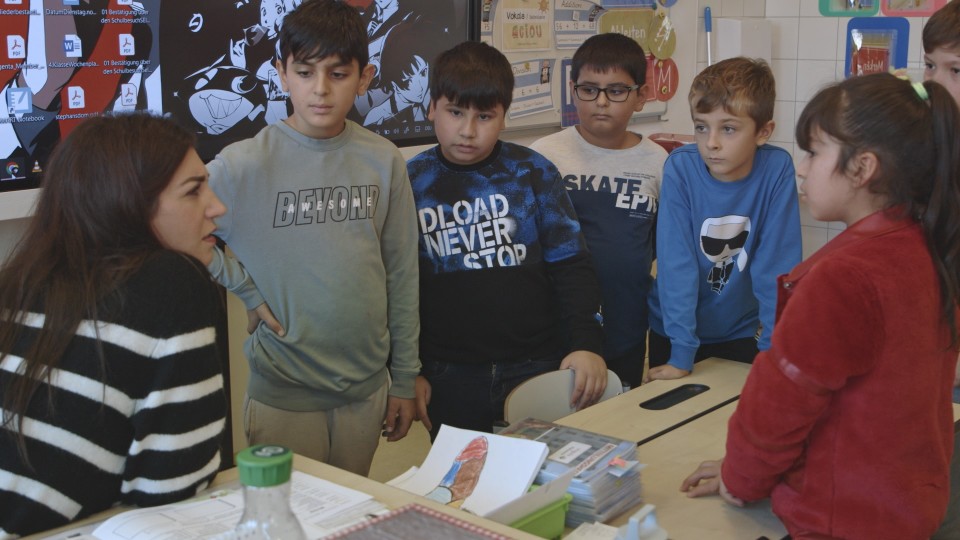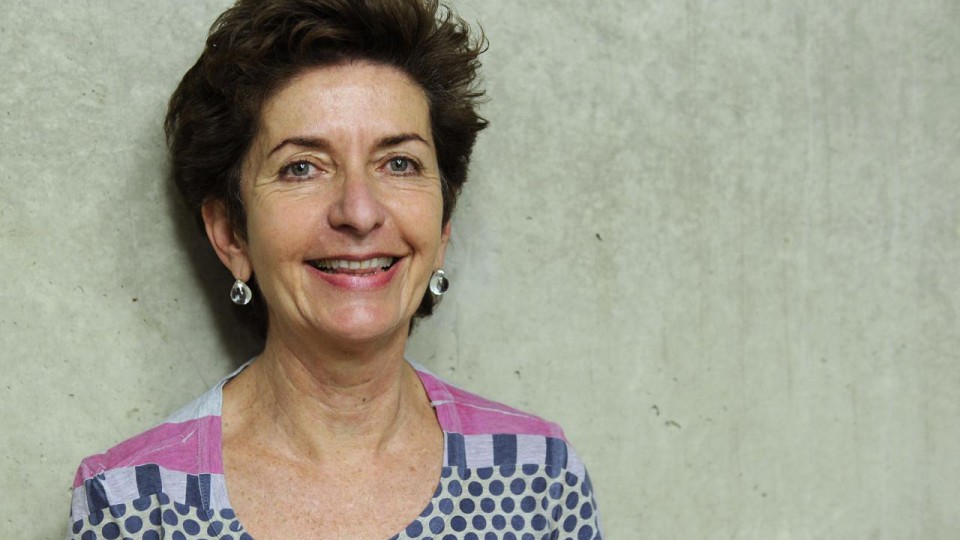Favoriten is Vienna's 10th district, and for about 40% of the people living in this, the most heavily populated district of the capital, German isn’t
their mother tongue. Over the course of three years, Ruth Beckermann accompanied an elementary school class and their highly
motivated teacher through everyday life: sometimes happy, sometimes very demanding. FAVORITEN provides explosive food for thought about the social relevance of elementary education for coexistence and cohesion in a
big city.
Filming for FAVORITEN began in the autumn of 2020, and since this was the first year of the pandemic, it meant that teaching
for school-age children was moved to their homes – and a new kind of inequality in education opened up. Was this what initially
drew your interest to a state elementary school?
RUTH BECKERMANN: No. The impetus was that I wanted to make a film about an elementary school class. An idea I had been carrying around with
me since long before the pandemic. It was intended to be a long-term study, to facilitate observation of the children’s development
over the entire elementary school period.
What does a state elementary school basically represent for you? Do you see it as the springboard to equal opportunities?
RUTH BECKERMANN: I think kindergarten and elementary school form an incredibly important basis, because children from the age of three are
so receptive. In some countries, children go to preschool from the age of three or four and are all able to read when they
start school at six. We don't have compulsory preschool. So elementary school, the Volksschule (“people’s school”) as it is still called in Austria, is very, very important, and it’s terribly neglected in this
country. It hurts your heart when you see the opportunities that are missed. The German language should be as natural a tool
as our hands.
Why did you decide to shoot in Vienna's largest elementary school?
RUTH BECKERMANN: We were, of course, interested in schools with quite a mixed catchment area. We were very warmly welcomed by the director
of this school in Favoriten. With a project like this, it’s really important to be welcome in a school. This school was particularly
interesting because it is attended almost exclusively by children from immigrant background. None of the children's parents
speaks perfect German. That's the point we’re getting at, really.
We are familiar with films about elementary school classes that focus on an extraordinary teacher's personality. Often these
people are close to retirement, or the school is about to close. You also have an excellent teacher as the protagonist here,
but your focus seems to be much more on the class and everyday life in an elementary school class in a major European city?
RUTH BECKERMANN: I'm mainly interested in the future. These children are the future of our society. Ilkay's class is representative of many
elementary school classes in Vienna or Berlin. Our teacher, Ilkay Idiskut, is a dynamic, dedicated woman. She constitutes
an example of what everyday life could look like today.
Everything that is discussed together in class also applies to the problems in our society. The great thing about this teacher
is that she engages in debate. The discussions in class are incredibly exciting. They involve questions such as: Are girls allowed to go swimming? Are girls... women allowed to wear a bikini? They discuss refugee issues, they discuss the Ukraine war. Ilkay also gets involved in arguments with the children, but she
always has complete respect for them. We also had the impression that the vast majority of the parents care deeply about their
children and want the best for them. The parents do whatever they can. But when they can’t do something, the schools or the
local authorities should provide assistance. That's totally missing. This teacher compensates for the failures in the school
system. We were often so horrified that she was alone in the class, without assistance. That there are hardly any remedial
German lessons in an all-day school. That there is no permanent supply of social workers or school psychologists at Vienna's
largest elementary school.
Which direction did your curiosity prompt you to take during the first phase of filming?
RUTH BECKERMANN: I was mainly interested in the personalities of the children. Of course, with a class of 25 children you can't portray all
of them, but I think we managed to get five or six children to emerge as individuals. We were interested in the topics that
interest the children. At first, we shot a lot of the actual lessons, but we all know what that’s like. We just hint at it
in the finished film. Too much teaching is unbearable. It was quite exhausting to sit in there. Even as an adult, you immediately
feel as though you're at school again. I often thought it must be about 12 now when it was only 9 o'clock; it made me wonder
how I ever got through those days and how these children put up with it. Some days they didn't get lunch until 2 o’clock.
They do gymnastics once or twice a week. How can you squat in that room for so many hours? Our idea was to be as close as
possible to the children. The arrangement was that my co-writer Elisabeth Menasse and I would be sitting in a corner, while
the cameraman, Johannes Hammel, and the sound engineer, Andreas Hamza, were moving around in the classroom. I couldn't be
next to the cameraman as well, which is usually how I stay in contact, so I couldn't intervene much in the action.
You gave the children a (hand) camera to create footage for the film. Was this also an attempt to enter into dialogue with
them?
RUTH BECKERMANN: Because I was so inactive as a director during the shoot, I had to come up with something. I didn't want to interview the
children, but I wanted to hear something different from what they said in the group. I also wanted to know how the children
would approach using the camera and interviewing each other. I love the section where the girls talk about getting married.
Such unexpected things come out. And you can see right from the start, when the children talk about their parents' professions,
that these parents are the people who keep the system going in the city: from construction workers to pizza bakers and cleaning
ladies in hospitals to nurses, these are the people who do the work here. And many of them don’t even have Austrian citizenship,
so they can’t vote.
Religious education is compulsory in Austrian schools. How did you approach this issue?
RUTH BECKERMANN: In Austria the Concordat, the agreement between the State and the Church, means that religion has to be taught in schools,
and I wanted to show this reality. We found it interesting that there wasn’t a single Catholic child in the class, and all
the children from the former Yugoslavia were withdrawn from religious education, while almost all Muslim children attended
religious education at school. We were often present at the Muslim religious classes, which take place twice a week, and we
could see how the children flourished. There they’re in their world. They know the subject, and they like that. But I think
inter-faith teaching or ethics lessons would be more meaningful and integrative.
You accompanied the class for three school years. How did you manage to end up with a film less than two hours long?
RUTH BECKERMANN: We shot a lot, although I basically try to shoot economically. In a school class, you never know who is going to say something
and when something interesting is going to happen. It was really hard for Johannes, and he did a good job. Then I spent a
lot of time in the cutting room with the editor, Dieter Pichler. Actually, we were very happy with our 3 ½ hour version, but
then we left the film and came back to it again and again, condensing it each time.
Since there is no system of comprehensive secondary schooling in Austria, there is a moment of bitter truth in the 4th grade
of elementary school, when the semester grades determine the future education of the 10-year-old children. It becomes clear
that, despite the fine pedagogical work of this teacher, there aren’t any miracles. Only a few of them go on to grammar school.
RUTH BECKERMANN: It can't work. No matter how good the teacher is. The children don’t understand what they read, not well enough. I don't
think there is a child in the class who is completely confident with the definite articles in German. Even if they have to
communicate with each other in German, it’s in very basic or incorrect German, and German is only the language of the school.
Five children went on to grammar school; whether they will make it there remains to be seen. If the classes were better mixed,
with half the children native German speakers let’s say, the others would learn immediately. But that would mean taking children
to different districts by school bus. And it would lead to an uprising of Austrian parents if their children were – God forbid
– taken to elementary school in Favoriten. The situation is all very conservative and rigid.
Do you have the feeling that the concept of state education is falling apart?
RUTH BECKERMANN: It's a very interesting and very frightening thought. In my generation, everyone went to state schools, except for a few
who went to the Lycée Français. Now the gap is widening. The people who want to, and have the means, send their children to
expensive private schools or denominational private schools. As a result, there is more and more segregation. We know much
less about each other. The effects of that are very clear. The situation is also connected with poor state schools. Not all
of them are bad. But a lot of them are overcrowded, and there’s a shortage of both teachers and other staff to relieve the
pressure. The politicians don't care. Everyone comes up with some sort of new ideas. There are tons of brochures about various
initiatives lying around in the schools, but they don’t reach the parents who need support, and nothing changes about the
basic concept. The whole school system needs to be completely overhauled.
An appeal to those responsible for education?
RUTH BECKERMANN: They should sit in a class for a week. Instead of just coming for a quick visit when everything has been cleaned up and everyone
is singing to them, they should take a look at what's really going on.
Interview: Karin Schiefer
January 2024
Translation: Charles Osborne

